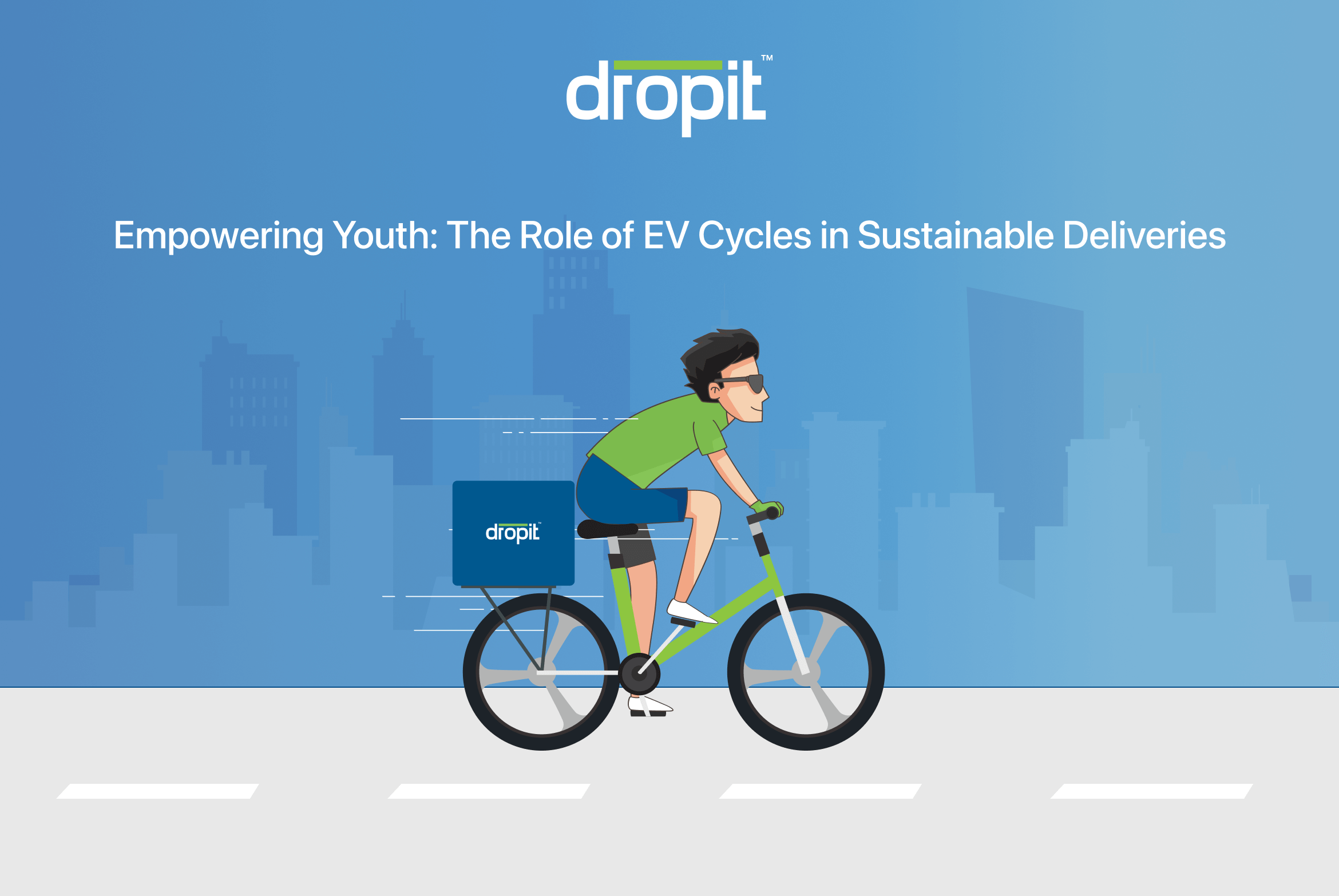In the race toward greener cities and smarter logistics, electric vehicles (EVs) have taken center stage. But not all EVs are created equal. While e-scooters and electric vans have gotten plenty of attention, a silent revolution is happening on two wheeled EV cycles, or electric cargo bikes.
Now imagine these bikes operated by an unexpected force: young adults. The combination is powerful, sustainable, scalable, and socially impactful. Companies like Dropit are not just rethinking last-mile delivery, they’re turning it into an opportunity to empower youth while cutting urban emissions.
Let’s dive into how this model works, why it’s gaining momentum, and what it means for the future of logistics.
1. Understanding the Urban Logistics Problem
Urban centers are becoming more congested than ever. With the boom in e-commerce, the demand for fast, reliable delivery is skyrocketing. But conventional delivery vans clog roads, increase pollution, and drive up last-mile costs often accounting for over 50% of total delivery expenses.
2. The Rise of EV Cycles in Delivery
Electric cargo bikes lightweight, battery-powered, and maneuverable are solving the “last-mile” conundrum in smarter ways. They can easily weave through traffic, park curbside, and make multiple deliveries efficiently in dense areas.
Dropit, for example, integrates EV cycles into its delivery fleet. Their mission? Deliver smarter and cleaner all while offering real-time tracking and zero-emission delivery.
3. Youth as a Force in the Delivery Ecosystem
Hiring young adults as delivery partners is more than a logistics tactic, it’s a social strategy.
- Teens and early 20s are often tech-savvy, energetic, and looking for flexible work.
- EV cycles remove licensing barriers, making it easy to participate in the workforce.
- The job instills responsibility, boosts confidence, and provides income in a safe, structured environment.
This model is particularly effective in cities where unemployment or lack of entry-level jobs impacts youth development.
4. Why EV Cycles Make Sense for Youth
EV bikes are not only green, they’re youth-friendly.
- Ease of use: No special license or mechanical skills required.
- Safety: Slower than scooters or motorcycles, but fast enough for timely delivery.
- Affordability: Cost-efficient for both riders and companies.
- Health: Riders stay active while working promoting well-being.
Dropit ensures all youth delivery partners are equipped with safety gear and training, creating a secure gig economy experience.
5. Environmental Wins: Cleaner Air, Lower Noise
EV cycle deliveries reduce carbon emissions by over 90% compared to diesel vans. They’re also significantly quieter, an underrated but important feature in noise-polluted cities.
One study found that replacing just 10% of urban van deliveries with e-bikes could save over 134,000 tonnes of CO2 annually in a single metro region.
6. The Tech Backbone: How Platforms Like Dropit Power the Model
This isn’t just pedal and go the entire experience is powered by technology:
- Real-time route optimization
- App-based job assignment
- GPS tracking for customers
- Instant digital proof of delivery
- Incentives and ratings for riders
Dropit has built a smart delivery ecosystem, making it seamless for riders, efficient for businesses, and trustworthy for customers.
7. Economic Impact: Creating Micro-Entrepreneurs
What makes this more than a job? The structure.
Dropit doesn’t just pay youth to deliver it enables them to become micro-entrepreneurs. Many partners handle multiple deliveries, earn incentives based on performance, and gain soft skills like time management and customer service.
Some use this opportunity to fund education, support families, or start side ventures.
8. Overcoming Challenges: Safety, Regulation, Scalability
Of course, the model isn’t without obstacles:
- City regulation: Some urban areas still lack clear laws around e-bike usage on roads.
- Weather limitations: EV cycles may not be suitable for harsh weather conditions.
- Scalability: Cargo limits and range might not suit all delivery types.
But platforms like Dropit are tackling these through modular bike designs, urban policy partnerships, and hybrid delivery models that combine EV cycles with vans when needed.
9. The Bigger Picture: A Scalable Model for Greener Cities
Cities globally are adopting low-emission zones, congestion charges, and zero-carbon targets. Electric bikes operated by youth don’t just check the box for sustainability, they represent a deeper shift in how modern logistics can be inclusive and community-driven.
This is a model that can be scaled in developed and developing cities, offering climate impact and social equity in one package.
Conclusion: Delivery is Changing. Let Youth Lead the Way.
At its core, Dropit’s EV cycle model is more than just a delivery system, it’s a platform for empowerment. It allows young adults to contribute to their cities, earn with dignity, and help solve one of the 21st century’s biggest urban challenges: last-mile delivery.
And it all happens while reducing emissions, unclogging streets, and giving consumers a better, faster, greener experience.
Ready to build a smarter, more sustainable delivery network?
Partner with Dropit today and be part of the movement that’s rethinking logistics one bike, one delivery, one young leader at a time.
